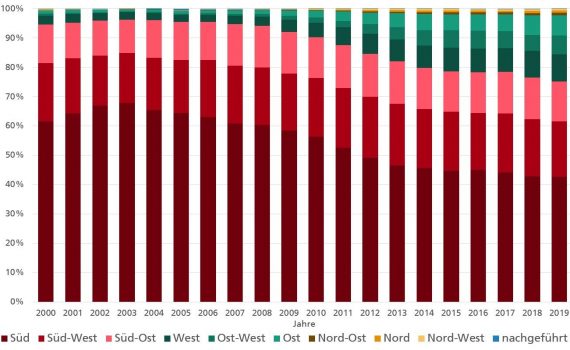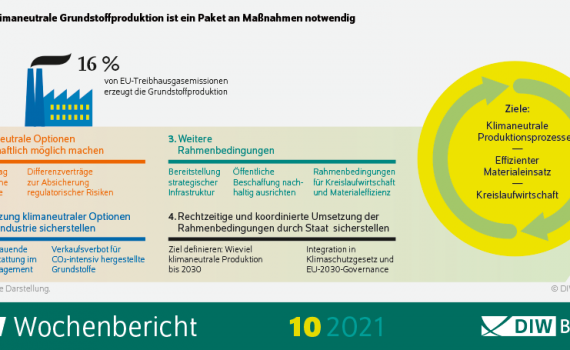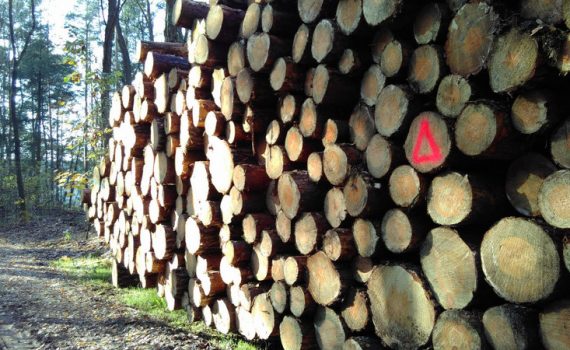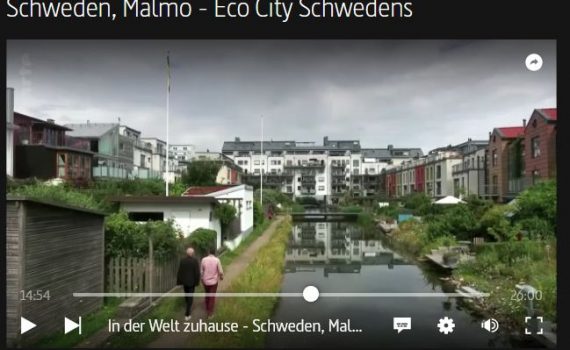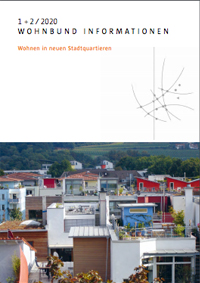The passive house turns 30 - pioneering work paves the way for energy efficiency worldwide The passive house celebrates its 30th birthday! The pioneering project started as an experiment by building physicist Prof Wolfgang Feist can take great credit for its success: When climate protection was only on the agenda for very few people, it paved the way for energy efficiency in buildings. Today, the passive house standard is being realised around the world, including in impressive flagship projects. Further reasons to celebrate: the 25th anniversary of the Passive House Institute and the anniversary edition of the International Passive House Conference.
Kategorie für Blog: Ecology
 To live up to its climate change pledge under the Paris Agreement, the European Union must ensure that all 250 million existing buildings, as well as all new buildings in the EU, produce near-zero greenhouse gas emissions. In a new report, European national academies of science, through their association EASAC, call for far-reaching policy action. "Policies have long focused on creating energy-efficient buildings that require less heating and air conditioning or generate renewable energy on site. However, the energy used to operate buildings is only part of the story. We need to broaden the scope and look at emissions from building materials and methods - both for new buildings and for building refurbishment," says William Gillett, Director of EASAC's Energy Programme.
To live up to its climate change pledge under the Paris Agreement, the European Union must ensure that all 250 million existing buildings, as well as all new buildings in the EU, produce near-zero greenhouse gas emissions. In a new report, European national academies of science, through their association EASAC, call for far-reaching policy action. "Policies have long focused on creating energy-efficient buildings that require less heating and air conditioning or generate renewable energy on site. However, the energy used to operate buildings is only part of the story. We need to broaden the scope and look at emissions from building materials and methods - both for new buildings and for building refurbishment," says William Gillett, Director of EASAC's Energy Programme.
 In a recently written short study, scientists from the Department of Energy System Analysis at the Fraunhofer Institute for Solar Energy Systems ISE prepared an evaluation of the Market Master Data Register (MaStR) and the EEG system master data for photovoltaics (PV). Important findings of the analyses were that with 38 percent of the newly installed capacity, the increase in capacity in Germany is increasingly taking place in the segment of rooftop systems larger than 100 kW, 22 percent of the newly built PV systems are erected in a west, east or east-west direction and 19 percent of these systems have tilt angles smaller than 20 degrees.
In a recently written short study, scientists from the Department of Energy System Analysis at the Fraunhofer Institute for Solar Energy Systems ISE prepared an evaluation of the Market Master Data Register (MaStR) and the EEG system master data for photovoltaics (PV). Important findings of the analyses were that with 38 percent of the newly installed capacity, the increase in capacity in Germany is increasingly taking place in the segment of rooftop systems larger than 100 kW, 22 percent of the newly built PV systems are erected in a west, east or east-west direction and 19 percent of these systems have tilt angles smaller than 20 degrees.
- Other countries are leading the way: Spain adopts 30 km/h speed limit in cities; French cities with 30 km/h speed limit have 70 percent fewer fatal accidents
- Federal government fails "Vision Zero" and ignores 30 km/h as an immediate measure in key points paper for new road safety programme
- Current United Nations Road Safety Week identifies reduction of speed limit to 30 km/h in built-up areas as key measure to protect lives
This building group project with 43 residential units, some of them as maisonettes, was realized as a timber hybrid building and exemplifies the qualities of timber construction in a dense urban context.
Exploit potential at neighbourhood level!
The KfW programme "Energy-efficient urban refurbishment" promotes integrated energy-efficient neighbourhood concepts and refurbishment management with programme part 432. Programme parts 201 and 202 provide investment support for cross-building and infrastructural supply systems. The Federal Ministry of the Interior, for Building and the Home Affairs provides the funding for the energy refurbishment process from the individual building to the neighbourhood from the Energy and Climate Fund (EKF).The Special price on the topic "Urban development revisited: Prices - Practice - Perspectives" was given to the project Urban development area Stuttgarter Straße, French Quarter in Tübingen. The special prize, which is awarded in parallel to the urban development prize, serves to highlight particularly urgent fields of action in urban development and urban planning. It was awarded on 23.4.2021 on the occasion of the 40th anniversary of the German Urban Development Prize to contributions that had already been recognised with prizes and awards between 1980 and 2010. The judging of the special prize was very complex, as it had to cover a span of 30 years, i.e. a generation, of the achievements of German urban development that were considered outstanding at the time, and, in retrospect, it had to be based on robust, objective criteria that could adequately reflect the complexity of 30 years of urban development history and 30 years of urban development models.
 The prize is awarded every two years by the German Academy for Urban Development and Regional Planning (DASL) with significant support from the Wüstenrot Foundation. Urban Development Award in the DSP 2020 competition goes to the project Quarter at the former Blumengroßmark in Berlin. With 81 applications, a particularly large number of projects were submitted for the Urban Design Award. The spectrum was very broad: urban-structural-geographical, thematic, structural-spatial. From the new town hall in the urban planning context of a small municipality to the large conversion project of a metropolitan region, the interdisciplinary jury (urban planning, architecture, open space planning, preservation of historical monuments, economics, sociology) was faced with a very difficult decision in many cases.
The prize is awarded every two years by the German Academy for Urban Development and Regional Planning (DASL) with significant support from the Wüstenrot Foundation. Urban Development Award in the DSP 2020 competition goes to the project Quarter at the former Blumengroßmark in Berlin. With 81 applications, a particularly large number of projects were submitted for the Urban Design Award. The spectrum was very broad: urban-structural-geographical, thematic, structural-spatial. From the new town hall in the urban planning context of a small municipality to the large conversion project of a metropolitan region, the interdisciplinary jury (urban planning, architecture, open space planning, preservation of historical monuments, economics, sociology) was faced with a very difficult decision in many cases.
 Sustainable development in Germany is inconceivable without a resource-efficient construction industry. The new expert recommendation VDI-EE 4802 Sheet 1 explains in a practical way how to apply the concept of resource efficiency in the life cycle of buildings. To this end, it breaks down the tasks and scope for action of the individual players in the construction process. Using examples of increased material, energy and space efficiency, the expert recommendation supports the entire planning process towards a resource-efficient building.
Sustainable development in Germany is inconceivable without a resource-efficient construction industry. The new expert recommendation VDI-EE 4802 Sheet 1 explains in a practical way how to apply the concept of resource efficiency in the life cycle of buildings. To this end, it breaks down the tasks and scope for action of the individual players in the construction process. Using examples of increased material, energy and space efficiency, the expert recommendation supports the entire planning process towards a resource-efficient building.
 "The raw material wood is precious. It is therefore important to use it responsibly and in a way that conserves resources," warns Peter Aicher, Chairman of Holzbau Deutschland. Even if wood is affected by environmental influences or the bark beetle, it does not represent an inferior raw material, but has almost identical properties to conventional construction timber. "If the so-called 'calamity wood' has the same structural quality in terms of load-bearing capacity as conventional sawn timber, it can be used without restrictions," explains Aicher. In addition, the wood retains its important function as a CO2 sink, regardless of external impairments.
"The raw material wood is precious. It is therefore important to use it responsibly and in a way that conserves resources," warns Peter Aicher, Chairman of Holzbau Deutschland. Even if wood is affected by environmental influences or the bark beetle, it does not represent an inferior raw material, but has almost identical properties to conventional construction timber. "If the so-called 'calamity wood' has the same structural quality in terms of load-bearing capacity as conventional sawn timber, it can be used without restrictions," explains Aicher. In addition, the wood retains its important function as a CO2 sink, regardless of external impairments.
Animation from Jan Kamensky (2020)
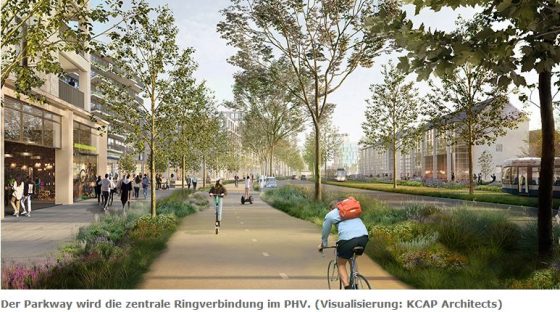 Heidelberg is receiving massive funding from the 2021 urban development programme for two construction projects on conversion sites. The development of Patrick-Henry-Village (PHV) into a new city district has even received the highest funding amount in the entire programme. Heidelberg will receive 3.5 million euros for this project. In addition, the conversion of the sports hall on the former US hospital in Rohrbach will be funded with 400,000 euros. This was announced by the Baden-Württemberg Ministry of Economics on Wednesday, February 3.
Heidelberg is receiving massive funding from the 2021 urban development programme for two construction projects on conversion sites. The development of Patrick-Henry-Village (PHV) into a new city district has even received the highest funding amount in the entire programme. Heidelberg will receive 3.5 million euros for this project. In addition, the conversion of the sports hall on the former US hospital in Rohrbach will be funded with 400,000 euros. This was announced by the Baden-Württemberg Ministry of Economics on Wednesday, February 3.
On 1 February 2021, the amendment to the Bavarian Building Code came into force. In the future, the building material wood can be used in all building classes. The legal changes make building in Bavaria easier and faster, more space-saving and more cost-effective.
In the video, the Munich timber housing estate "Prince Eugene Park" and the City of Wood in Bad Aibling. "Drought and bark beetles are causing severe problems for the forest. The resulting damaged timber has caused the price of wood to plummet. Local forest owners are making a loss, although the beetle wood is being exported thousands of kilometres to China and America as construction timber. What could be the solution to the timber shortage? And could more timber construction in our country also be a way out of the climate crisis?"
The state of Baden-Württemberg is setting an example in climate protection: by 2040 at the latest, the state administration is to operate in a climate-neutral manner. The new Climate Protection Foundation supports it in this by using the interest on its share capital to promote research and development as well as educational projects in the field of climate protection. In addition, the state, municipalities, companies and all citizens can offset their CO2 emissions through compensation payments and thus become climate neutral. The cooperation partner will be the non-profit climate protection organisation myclimate Germany.
 "New large-scale construction projects and ecological innovations have ensured that Malmö is now a prime example of the direct transition from an industrial metropolis to a sustainable eco city. The secret recipe: the city not only relied on innovative technologies, but above all on the active participation of citizens in the transformation."
"New large-scale construction projects and ecological innovations have ensured that Malmö is now a prime example of the direct transition from an industrial metropolis to a sustainable eco city. The secret recipe: the city not only relied on innovative technologies, but above all on the active participation of citizens in the transformation."
On 22.12.2020, the Senate passed the first legal ordinance on the Hamburg Climate Protection Act. This regulates the concrete implementation of the solar roof obligation and the integration of renewable energies when replacing heating systems. With these regulations, Hamburg is one of the pioneers in climate protection in the building sector nationwide.
A new study from Denmark takes a look at the costs of sustainable building construction and shows that more sustainable does not automatically mean more expensive. On the contrary. The study by Buus Consult on behalf of the DGNB system partner from Denmark, the Green Building Council Denmark, now provides clarity. In the study, it takes a close look at 37 DGNB-certified buildings.
 Forestry Minister Peter Hauk MdL: "With our call for ideas, we want to further promote municipal timber construction in the state and further consolidate our nationwide position as the No. 1 timber construction state".
A total of around 6.5 million euros in funding from the Baden-Württemberg timber construction campaign is available for the call for ideas for municipal timber construction concepts. The online application deadline is 12 February 2020.
Forestry Minister Peter Hauk MdL: "With our call for ideas, we want to further promote municipal timber construction in the state and further consolidate our nationwide position as the No. 1 timber construction state".
A total of around 6.5 million euros in funding from the Baden-Württemberg timber construction campaign is available for the call for ideas for municipal timber construction concepts. The online application deadline is 12 February 2020.
Constance receives project funding for "Hafner KliEn" from the 7th Energy Research Programme of the Federal Government The city of Constance is striving for sustainable urban development. This should include consideration of the triad of sufficiency, efficiency and substitution in the area of energy policy decisions and climate protection. This also and especially applies to the new city district [...].
 In the context of the Green Deal, the EU's tightened targets on the path to climate neutrality envisage a reduction in CO2 emissions of 55% by 2030 and 100% by 2050. Against the background of these tightened parameters, the question arises as to the impact on the energy transition in Germany. Based on its energy system model REMod, Fraunhofer ISE has calculated the consequences of the new EU targets for the expansion of renewable energies in Germany and now presents the results in a short study.
In the context of the Green Deal, the EU's tightened targets on the path to climate neutrality envisage a reduction in CO2 emissions of 55% by 2030 and 100% by 2050. Against the background of these tightened parameters, the question arises as to the impact on the energy transition in Germany. Based on its energy system model REMod, Fraunhofer ISE has calculated the consequences of the new EU targets for the expansion of renewable energies in Germany and now presents the results in a short study.
Emissions targets, some of them significantly improved, show effectiveness of Paris Agreement / But too few commitments for financing climate protection and adaptation to climate change in poorer countries / Chancellor Merkel must swiftly launch international process for additional climate financing
 A broad alliance of actors from civil society, science, industry and practice is calling on the German government to promote the climate-friendly construction, maintenance and demolition of buildings. Up to now, only the use phase of buildings has been taken into account in state subsidies for buildings and in the Building Energy Act. There is a complete lack of specifications and consideration of the climate impact of building materials and the construction and disposal of buildings - despite the fact that the construction sector, with its upstream and downstream processes, contributes around 8 percent to German greenhouse gas emissions.
A broad alliance of actors from civil society, science, industry and practice is calling on the German government to promote the climate-friendly construction, maintenance and demolition of buildings. Up to now, only the use phase of buildings has been taken into account in state subsidies for buildings and in the Building Energy Act. There is a complete lack of specifications and consideration of the climate impact of building materials and the construction and disposal of buildings - despite the fact that the construction sector, with its upstream and downstream processes, contributes around 8 percent to German greenhouse gas emissions.







